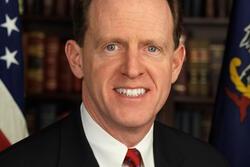Doctor, Doctor! How Shonda Rhimes Changed My Perception of Medicine
When someone says “doctor,” the first person that pops into my head is Meredith Grey. Yes, she may be a fictional doctor, but she’s the first doctor who inspired me to look into medicine as a possible career choice.
Grey’s Anatomy is an incredible show. Now in its thirteenth season, Grey’s follows the life of surgeon Meredith Grey, from her first year as an intern, to her many years as an attending in general surgery. While the show does have some flaws, it has a diverse cast that highlights many strong women, as well as an overall progressive point of view.
As a Grey’s fan, I’m very proud of its diverse cast. We live in a time when the hashtag #OscarsSoWhite was trending on Twitter not too long ago. While many of the characters on the show are white, the show maintains what I would argue is a realistic reflection of racial diversity. As a feminist, I am a strong advocate of intersectionalism. Not all women face the same struggles, and it’s important to take this into account. For example, it’s important to recognize that black women’s experiences differ from those of white women. By including strong women of color in the cast and making an effort to highlight their unique experiences, Grey’s maintains an intersectional point of view.
One of my favorite aspects of Grey’s Anatomy is the fact that it normalizes homosexuality. Several characters identify as gay, such as Arizona Robbins and Callie Torres. This allows homosexual relationships – although notably all female – to be integrated into the show just as naturally as heterosexual relationships. Medicine is a difficult career area for any minority, especially LGBTQ people. As real Dr. Mark Schuster describes in his blog for the New York Times, coming out used to be a career-ender. I love that Grey’s viewers subconsciously learn to accept that a pediatric surgeon or an orthopedic surgeon can be both gay and talented doctors; their sexual orientation doesn’t limit their abilities.
Grey’s was my first exposure to medicine; and it sparked my interest in STEM fields. Because of that, for a full two years I was convinced that I was going to be a doctor when I grew up. As I mentioned before, Grey’s plot revolves around one strong female lead: Meredith Grey. In a world where women are often discouraged from going into STEM fields, it’s empowering to see strong women flourishing in these types of roles. Women are in full force on Grey’s; from neurosurgery to trauma to cardiac surgery, these women are unstoppable. Characters like Miranda Bailey and April Kepner illustrate that women are unquestionably cut out to be doctors, and can successfully balance career and family in one of the most grueling fields. The show inspired me to believe that I could pursue a successful career as a doctor, and I believe the show has had the same affect on many other young women as well.
One problem with the show is that the female characters always seem to need a romantic counterpart. Much of the show’s drama revolves around relationships: which attendings are sleeping with which residents or interns, the recent gossip, and crushes. While I understand the show’s need to be dramatic and entertaining, it seems that the female characters’ need to either be in a relationship or embroiled in relationship drama, is a little overboard. For example, before Meredith’s husband Derek dies, they were the one couple that held the show together. For over 10 seasons, they were in a committed relationship or married. However, a few years after Derek’s death Meredith begins a relationship with a new attending: Nathan Riggs. I think the point of killing off Derek was to emphasize the idea that Meredith herself is the focal point of the show, so I don’t understand why the creators felt the need to put her in a new romantic relationship. Her character is the epitome of strength and resilience, which is better emphasized when she’s forced to go it alone.
There’s no doubt Grey’s has its flaws; Shonda Rhimes kills off way too many of her main characters, sex plays too big of a role in the show’s drama, and apparently the creators feel that everyone has to be paired up romantically. However, Grey’s is incredibly empowering for female viewers. It highlights strong, self-sufficient female characters, and signals that women can totally kick ass in STEM. In a more general sense, the show’s commitment to various types of diversity is also commendable. Although I’m not set on being a doctor anymore, Grey’s Anatomy gave me the courage to be confident in my STEM classes, the platform to see myself growing into a woman with a successful career and a family, and, with the latest episode, an excuse to procrastinate on writing this blog post.
This piece was written as part of JWA’s Rising Voices Fellowship.







